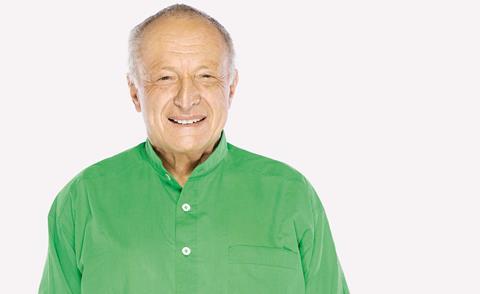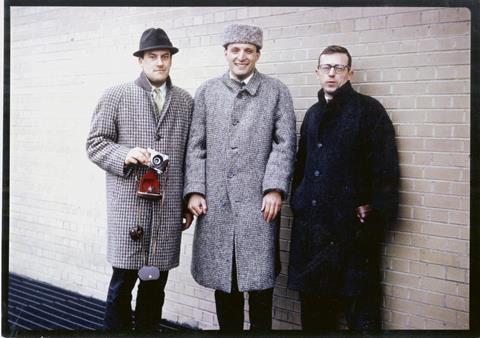Richard Rogers’ widow has opened up about the final years of the pioneering architect, 12 months after his death at the age of 88.
Ruth Rogers underscored the massive impact of an early-morning fall the on the two-time Stirling Prize-winning designer of the Pompidou Centre and the Lloyds building, and its effect on his creative output.
Speaking about the RIBA Gold Medal and Pritzker Prize-garlanded architect’s health issues for the first time, as part of a BBC Radio 4 programme at the weekend, Ruth Rogers said her late husband’s personality still shone through.

“He fell, in Mexico,” she said. “At 7 in the morning he slipped on a marble floor and hit his head. He was in the hospital for four months.
“I’ve never spoken about this publicly but it is a fact that he fell. He had severe damage to his brain. And then we came home.
“And I have to say that in three years – it’s three years since it happened – he became diminished in his ability to create and to talk and to function in many ways.
“But he was so elegant and so kind. And he never was aggravated, never impatient. He was Richard. He never stopped being Richard.
“Norman Foster was maybe the last person to speak to him on the phone and told him how much he loved him.”
Foster – who befriended Rogers in the early 1960s, when both were students at Yale University in Connecticut – told the documentary that the impact of Rogers’ accident had brought them closer than they had been in many years.
“Towards the end I became very close to Richard, when he was not well. Perhaps closer than I had been at the beginning,” Foster said.
“Perhaps, given the circumstances of Richard’s health, a heightened sense of awareness on my part of the importance of those early years together. The delayed appreciation of that.”

Foster – who set up the Team 4 practice with Rogers in 1963, along with their respective partners Wendy Cheesman and Su Brumwell – said he had never taken the time he spent with Rogers for granted. However he said he possibly acquired a new perspective on their friendship and early-years collaboration.
“Perhaps, in the last years of Richard’s life, I had a deeper appreciation of that,” he said.
Ruth Rogers told the documentary that while visitors would leave in tears after seeing Rogers, there was also a sense of good fortune and that there were also good times.
“They’d come and they’d leave feeling ‘lucky me, I got to be with Richard’,” she said. “Towards the end it was hard. But it was OK. We were good. We had good times. We watched Singin’ in the Rain 100 times. We went for long walks. We were good.”
Archive on 4: Richard Rogers, Catalyst can be heard on BBC Sounds
